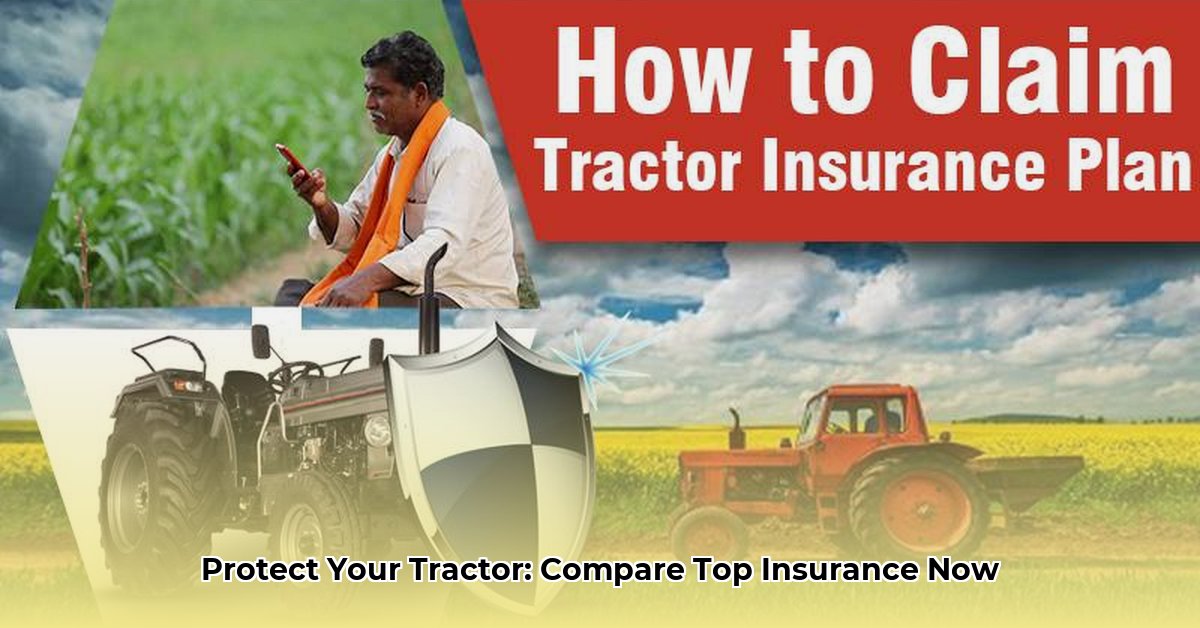
Insurance for Your Tractor: Protecting Your Investment
Owning a compact tractor represents a significant investment. Protecting that investment requires the right insurance policy. Choosing the right coverage can seem daunting, but this guide simplifies the process, comparing top providers and guiding you through selecting the best policy for your needs. Whether your tractor is for personal use or part of your business, we'll equip you to make an informed decision. For more information on USAA tractor insurance, check out this helpful resource.
Comparing Top Tractor Insurance Providers: Progressive vs. USAA
Two leading providers, Progressive and USAA, offer distinct advantages. This comparison highlights key differences to help you decide which better suits your needs. Remember, rates vary by location and individual circumstances; these are general observations.
| Feature | Progressive | USAA |
|---|---|---|
| Liability Coverage | Generally starts lower, with more discount options | Typically starts higher, with fewer discounts |
| Comprehensive/Collision | Available; options vary by policy details | Available; often includes replacement cost for newer tractors |
| Discounts | Offers numerous discounts (bundling, homeowner, etc.) | Fewer discounts overall; loyalty programs may offer savings |
| Commercial Use | Usually requires a separate, specialized policy | Requires a separate commercial policy |
| Tractor Age Limits | Older tractors may have higher premiums or limited coverage | Older tractors may face higher premiums or ineligibility |
| Deductible Options | Wide range of deductible options | More limited selection of deductible amounts |
Progressive: Progressive often offers competitive pricing, particularly for newer tractors and those with good safety records. Their broader range of discounts can yield significant savings. Their online quote process is generally user-friendly. However, coverage for older tractors may be limited, and the specifics of replacement costs might not always be transparent. Commercial use is typically excluded.
USAA: USAA frequently provides superior liability coverage. They are also known for replacing newer, totaled tractors at full value – a major advantage. However, their policies typically start at a higher price point, with fewer discount options than Progressive. USAA mainly serves military members and their families; eligibility is a key consideration.
Finding the Right Tractor Insurance: A Step-by-Step Guide
Selecting the optimal tractor insurance policy involves deliberate steps:
1. Assess Your Needs: Determine your tractor's value, intended usage (personal or commercial), and your risk tolerance. This assessment is crucial for determining the appropriate level of coverage. For instance, a commercially used tractor will require far more extensive coverage than one used solely for personal gardening.
2. Obtain Multiple Quotes: Contact several insurance providers. Don't settle for the first quote; comparison shopping is vital. Accurate information regarding your tractor's details (make, model, year, usage) ensures accurate quotes and avoids potential coverage gaps. Is it worth the time to obtain multiple quotes? Absolutely! The potential savings can be substantial.
3. Understand Policy Details: Familiarize yourself with key terms:
- Liability Coverage: Protects you financially if your tractor damages property or injures someone.
- Comprehensive Coverage: Covers damage (excluding collisions) from events like fire, theft, or hail.
- Collision Coverage: Covers damage from accidents.
4. Explore Discounts: Inquire about available discounts. Many insurers offer reductions for safety features, bundling policies, or safe driving records. These discounts can significantly lower your overall costs. What percentage of savings can you realistically achieve through discounts? It often depends on the provider and your individual circumstances, but it's always worth investigating.
5. Consider Future Costs: Premiums can fluctuate due to factors like claims history and inflation. Factor potential increases into your long-term budget.
6. Commercial Use Considerations: If your tractor is used commercially, you'll need a separate, specialized policy designed to address the unique risks involved. These policies typically offer broader coverage, but with higher premiums to reflect the increased liability. Compliance with applicable state regulations is crucial.
Commercial vs. Personal Tractor Insurance: A Detailed Comparison
The differences between personal and commercial tractor insurance are substantial:
| Feature | Personal Use | Commercial Use |
|---|---|---|
| Coverage Levels | Basic liability, potentially comprehensive/collision | Extensive liability, comprehensive, and collision, plus additional endorsements |
| Premium Costs | Generally lower | Significantly higher |
| Risk Assessment | Lower risk profile | Higher risk profile, potentially encompassing property damage, third party injury, business interruption |
| Policy Requirements | Simpler, less extensive | More complex, detailed |
This highlights the necessity of selecting the correct policy type based on your intended use.
Protecting Your Investment: Beyond Insurance
While insurance is vital, proactive risk management is equally crucial. Regular maintenance, secure storage, and safe operation significantly reduce the chances of accidents or damage. These practices can also lead to lower premiums with some insurers, creating a mutual benefit.
This guide provides a framework. Always consult multiple insurers, compare quotes meticulously, and ask questions to ensure you select the best tractor insurance suited to your specific needs and circumstances.